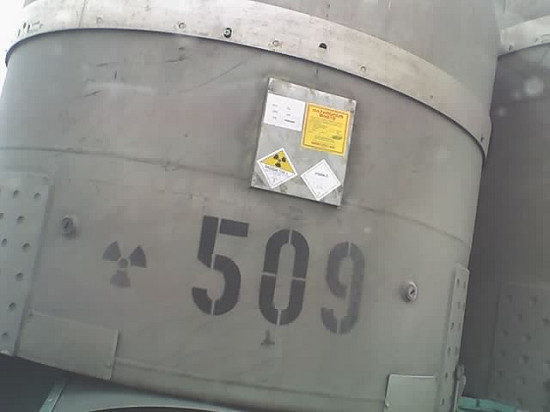
Though the Navy already transports its radioactive wastes by train from their ships to a designated storage facility, the proposal by the US government only highlights transportation. No one knows yet where exactly they are planning on storing the radioactive waste, as an interim site won’t be ready before 2021 for testing. A permanent home for the radioactive nuclear waste is also location unknown, but anticipated to be good to go by 2048 for all long-term nuclear waste dumping.
Everett Redmond of the Nuclear Energy Institute has said, “You don’t want to wait until you’re close to opening the facility to try and design a rail car.” Emphasizing the importance in every aspect of hauling such hazardous cargo. The train would also require buffer cars so as to protect the crew from any radiation being hauled in the requested containers.”
The Department of Transportation and the U.S. Nuclear Regulatory Commission are equally responsible for regulating nuclear shipments across the United States.
Transporting spent nuclear fuel is possible, as it has been and is currently being done. It is estimated that between 1979 and 2007 approximately 2,300-tons of waste were transported over land by train. When removed from the reactor, nuclear fuel can be extremely hot and radioactive. A water-filled pool is used to cool the fuel, at which point it is then transferred to the massive casks that are capable of siting on land. This is not to be considered a final method of storage, though.
The latest move by the Obama administration in considering contracts to further develop, test and certify all necessary equipment is promising and quite appealing to potential investors and manufacturers alike.
According to US law, the federal government is in charge of and responsible for nuclear fuel disposal in the United States. Prior to this year, the Energy Department had collected a fee for the funding of radioactive nuclear disposal from electricity customers, but after a successful lawsuit the fee is no longer being levied through electric bills.
(Photo courtesy of mark gallagher)
I’m a poet, an entrepreneur, a creative writer, a cynic, and most importantly, a child at heart. My personal experience working in the Financial industry as proven an asset to my industrious qualities. My control over the English language has effectively helped to persuade many opportunities into action. I seek all the knowledge I can obtain, and gladly share it with all who’d listen.
Comments